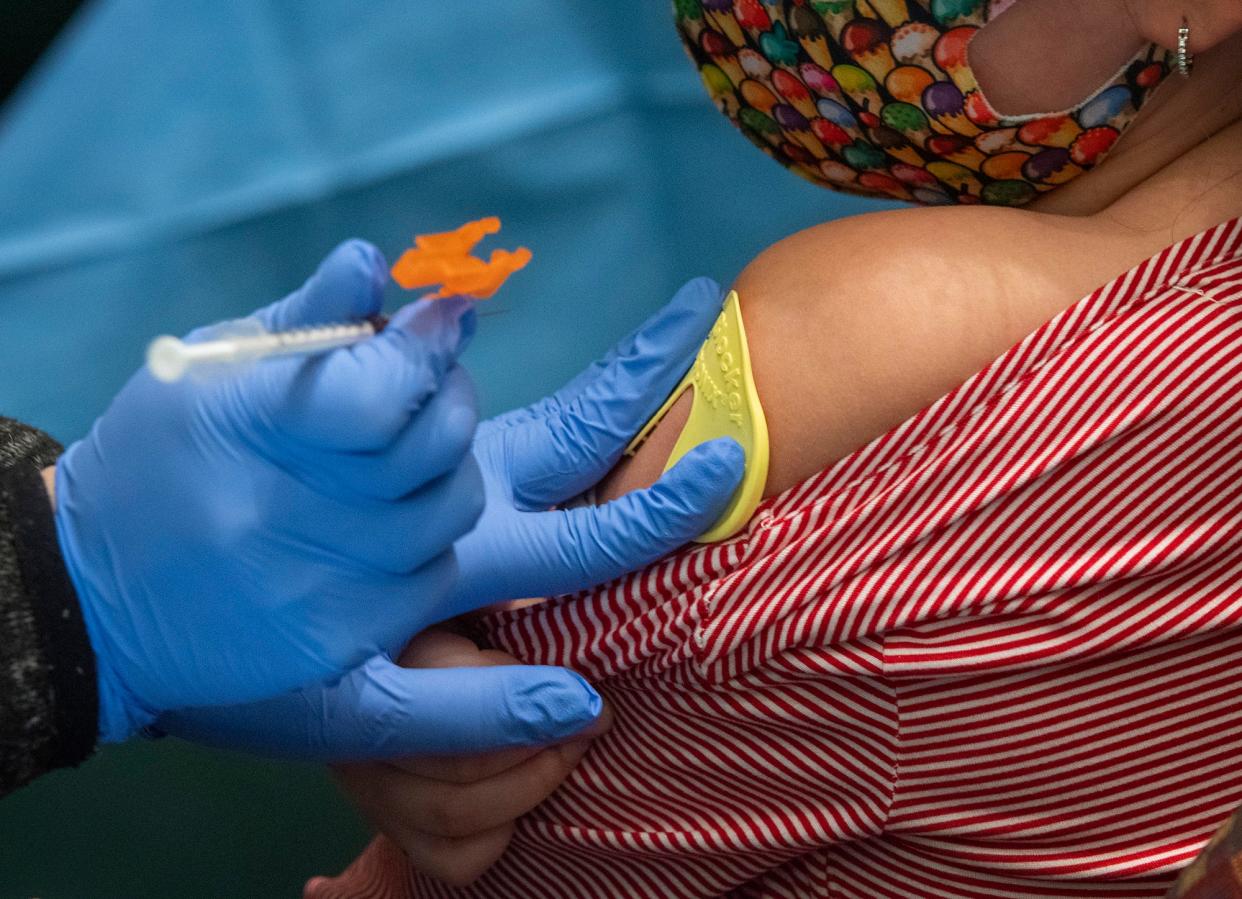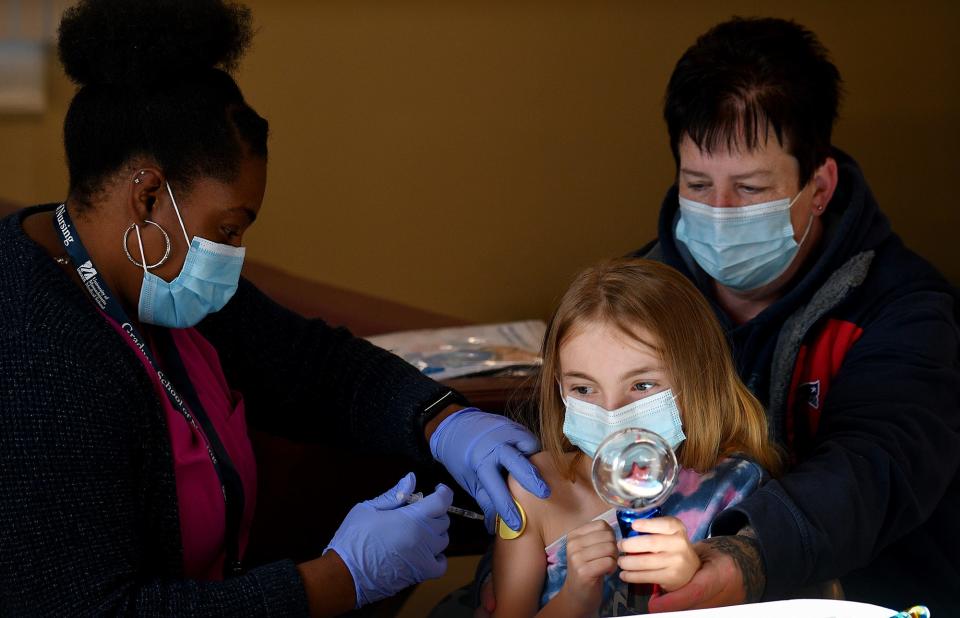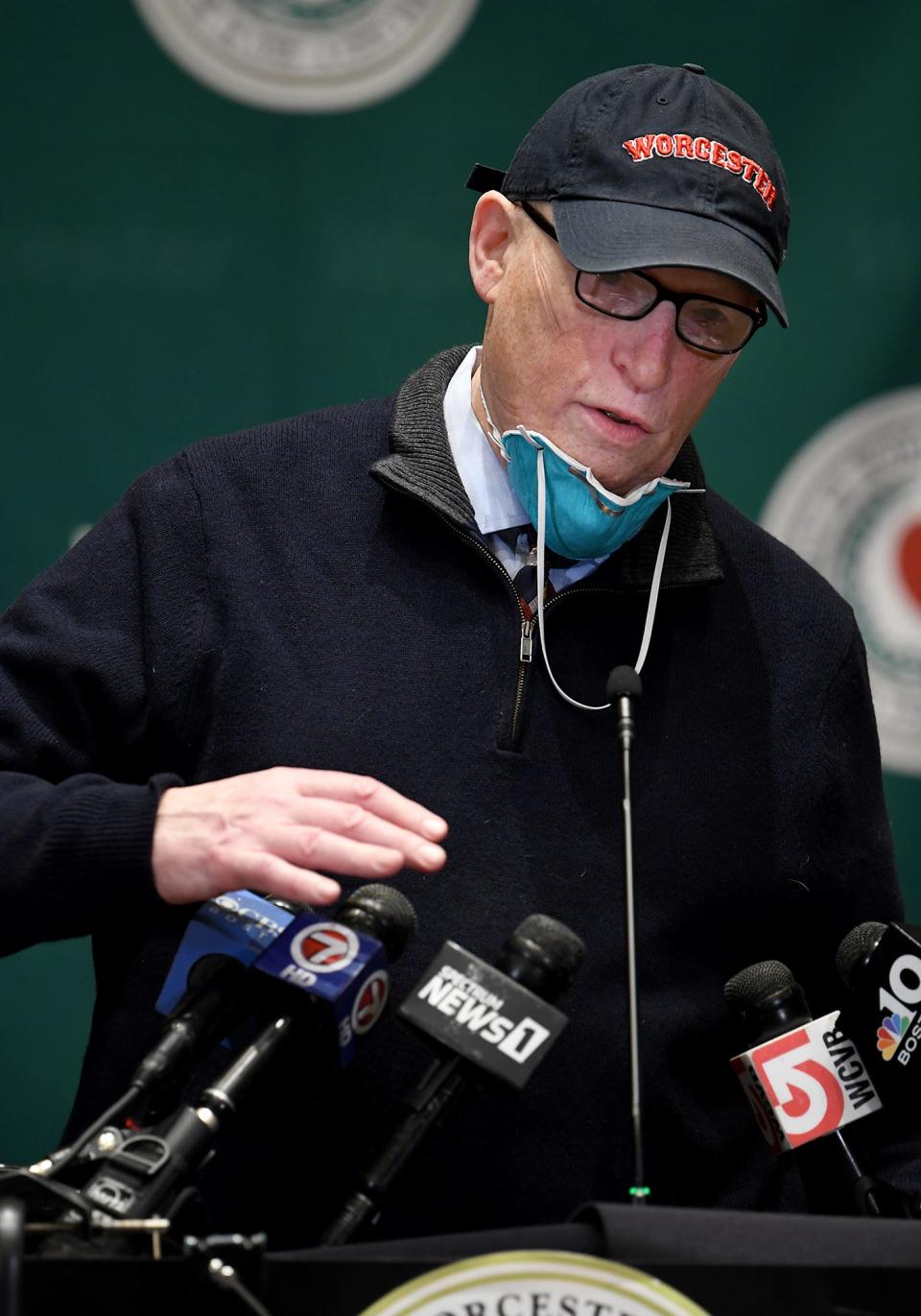State senator proposes measure promoting community immunity via data collection

- Oops!Something went wrong.Please try again later.
BOSTON — As the COVID-19 pandemic enters its third year, a state lawmaker is hoping the third time is the charm for a proposal promoting community immunity through improved data collection on immunization and vaccine exemption rates throughout the state.
The measure, being presented by state Sen. Becca Rausch, D-Needham, whose district includes Milford, would require students enrolling in covered youth programs — such as public schools, summer camps or day care — to provide documentation of their state-required immunizations, or a Massachusetts Department of Public Health-approved exemption form for either medical or religious reasons.
Private programs would be able to implement stricter requirements, but they would not be allowed to refuse medical exemptions. Massachusetts currently requires immunizations for students attending elementary up to postsecondary schools, both public and private, and some preschools.

“(It’s) not to mandate vaccines, not to require anybody to do anything,” Rausch said. “It is to generate the data, the information, the education, the outreach and the consistency and standardization that we need in order to achieve the robust public health infrastructure that we deserve.”
The bill was first filed in the fall of 2019. The language has been adjusted to clarify and streamline the act’s goals, as well as reflect some of what was passed last session, Rausch said.
Worcester's LeBoeuf on board
A companion measure has been filed in the House by state Rep. Paul Donato, D-Medford. Its co-sponsors include state Rep. David LeBoeuf, D-Worcester.
Having available data on immunization rates — which covered youth programs would be required to report annually — will allow parents the opportunity to make informed decisions on where to send their children to school, Rausch said.

Communities with low vaccination rates are more susceptible to the spread of infectious diseases, Rausch said, and the bill will work to provide medically accurate and culturally competent outreach and education in those areas.
The Department of Public Health would also distribute informational pamphlets about immunization safety and efficacy to the parents and legal guardians who submit exemption forms; elevated risk programs would distribute the pamphlet as well. The pamphlet would also be available online, according to the bill.
Hirsh: Vaccine politicized
Any youth program that hasn’t achieved herd immunity, as well as those that fail to report their statistics, would receive an elevated risk program designation.
Michael Hirsh, medical director of the Worcester Division of Public Health, said community or herd immunity is reached when 75% to 80% of a community is vaccinated against a particular disease.

Hirsh said children are likely to transmit contagious diseases, like measles or the mumps, to more vulnerable populations who are taking care of them: Pregnant parents and elderly grandparents. Children also go to school in tight quarters, he said, which isn’t ideal for social distancing.
“I think, unfortunately, one of the unintended consequences of the pandemic has been the politicization of vaccination in general,” Hirsh said. “We're seeing more than just vaccine (hesitancy) … we're falling behind on all vaccinations, so that's why we've seen outbreaks of measles, outbreaks of polio.”
Hirsh said the Worcester Division of Public Health is trying to work with more “trusted messengers” — like local clergy, community leaders and parents — who have navigated the vaccination process to encourage others to do the same.
“We have lost a lot of credibility and I think we're really, desperately seeking ways to get it back,” Hirsh said. “I think there's just a lot more vocal opposition to vaccination in general.”
Glenn Koocher, executive director of the Massachusetts Association of School Committees, said he worked with Rausch’s office on the language of the bill to make it as accommodating as possible.
“Clearly it was a priority for our association,” Koocher said.
“I think it’s pretty clear that vaccination is what helped abate the pandemic,” Koocher said. “From a public policy point of view, required vaccination to enter school, which has been part of the process for decades and decades, is good public policy.”
Rausch said that when the bill was first filed, people questioned its necessity. But when the pandemic began just months later, the answer was made clear.
“We like to think that we have a really robust vaccination rate, and among the data that we do have, that's true. But we're missing data from literally thousands of youth programs all throughout the commonwealth,” she said. “We don't know what's happening in those programs and we can't take action on anything that we're not measuring.”
This article originally appeared on Telegram & Gazette: State lawmaker proposes measure promoting community immunity

